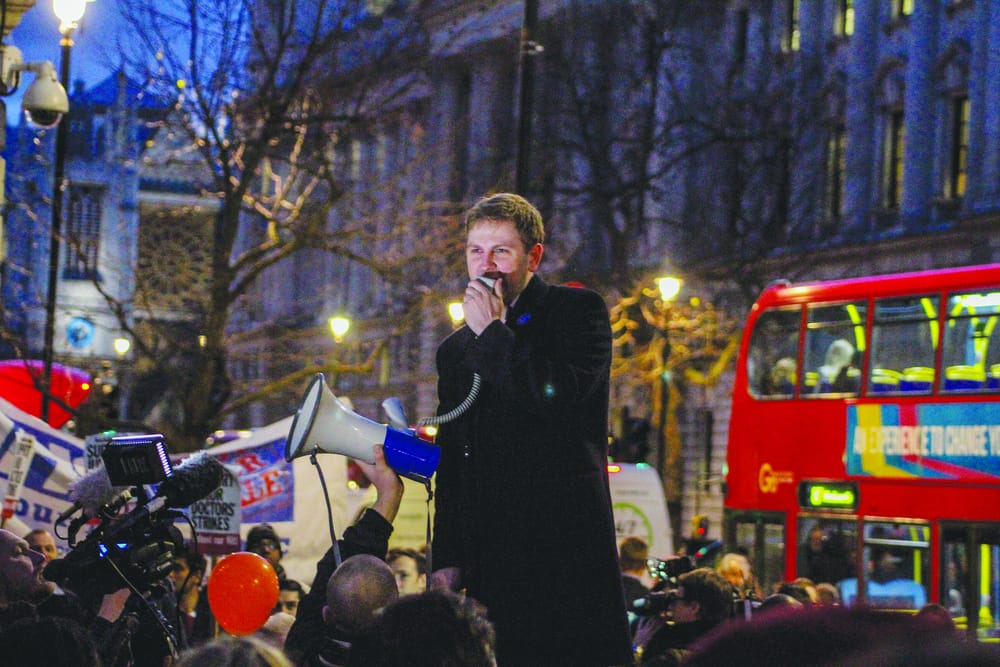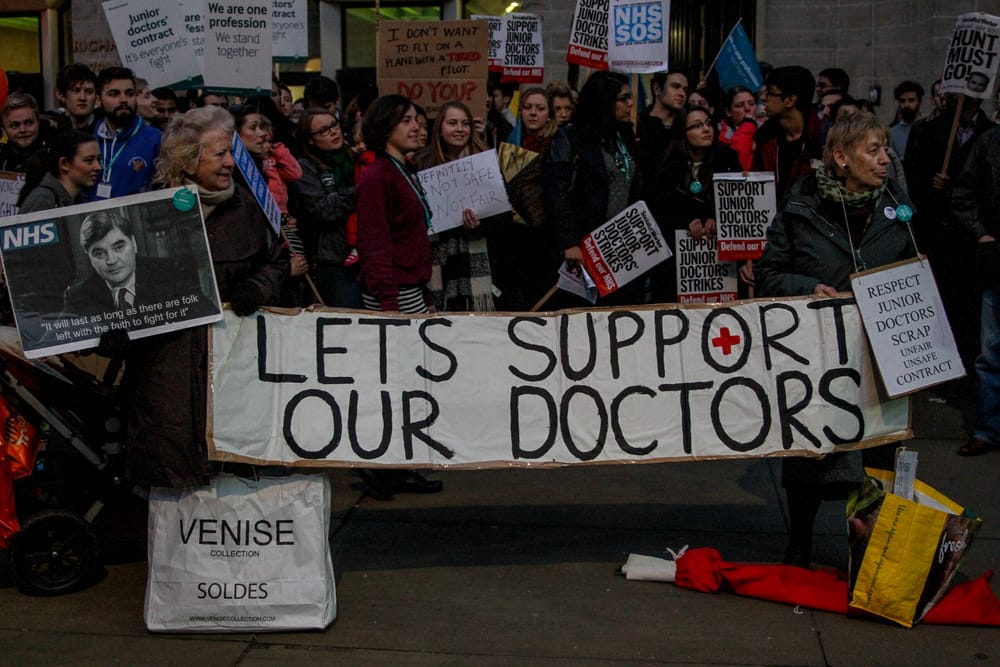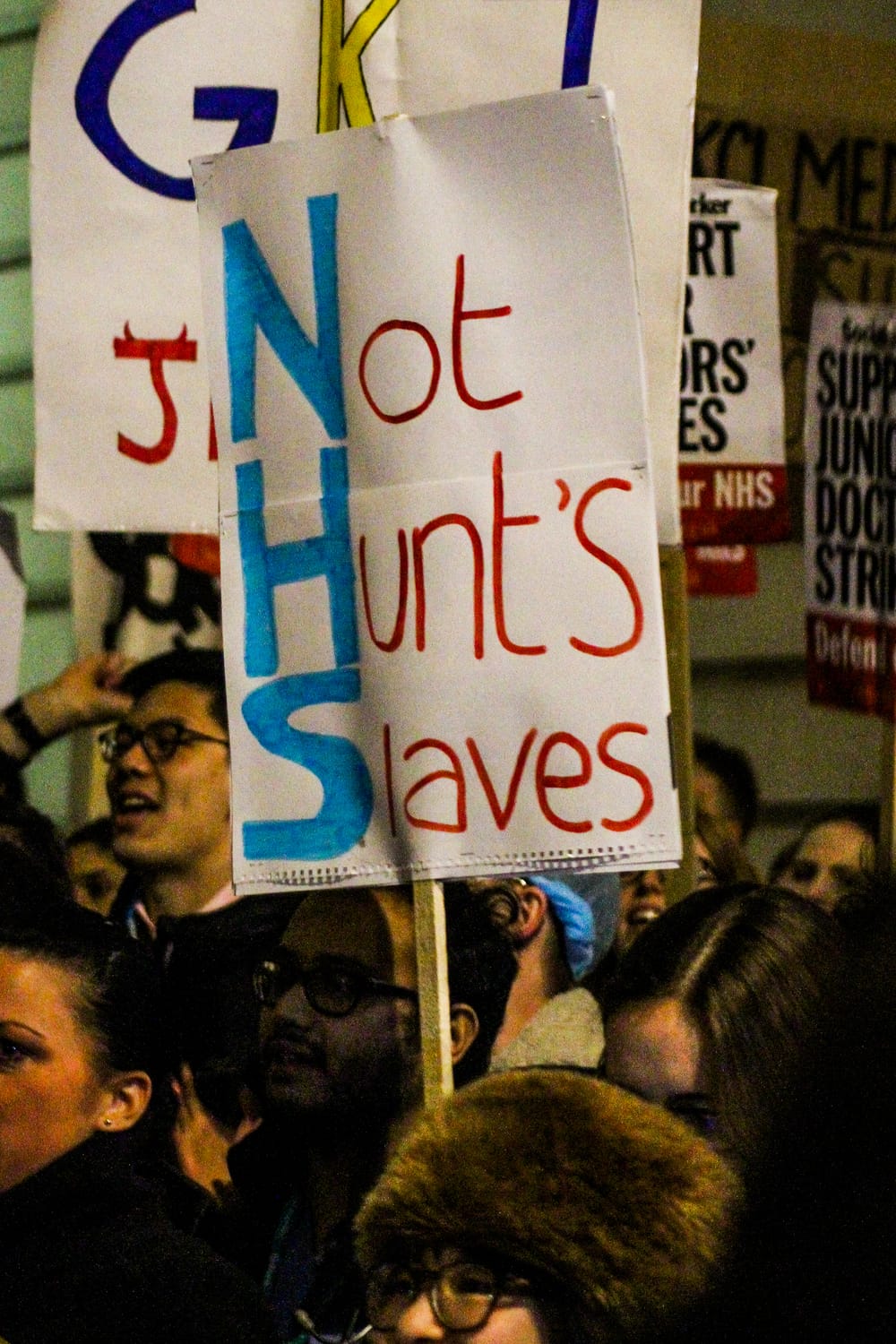Junior doctor contracts to be imposed by government
Hours after the announcement a protest was held outside the Department of Health

After further talks and a 24 hour strike this week, Jeremy Hunt has announced that controversial new junior doctor contracts will be imposed on medics.
During talks between the government and the BMA that continued during Wednesday’s strike, a “final deal” was rejected by the doctors’ union. The BMA have called it a “total failure on the government’s part”.
On Thursday evening, junior doctors, supportive members of the public and medical students, including the ICSMSU President and the Deputy President of Welfare attended at impromptu protest outside the Department of Health on Whitehall. They held placards and reiterated that the BMA would not stop fighting.
It is unclear where junior doctors can go from here, but in a press release, the chair of the junior doctors committee for the BMA said: “Junior doctors cannot and will not accept a contract that is bad for the future of patient care, the profession and the NHS as a whole, and we will consider all options open to us.”
Assuming the government’s latest offer was enforced on junior doctors, the new system would be phased in from August of this year. In his last letter to the BMA, the government’s contract negotiator, Sir David Dalton, said this would be likely to take 12 months to roll out across all NHS Employers in England. This means any medical students graduating at the end of this year would likely be immediately under the new contract.

On Wednesday Sir Dalton advised Jeremy Hunt to do “whatever necessary” to conclude the dispute after the BMA refused what he had called an “improved offer”. Yesterday the shadow health secretary, Heidi Alexander, said Hunt’s “desire to make these contract negotiations into a symbolic fight for delivery of seven-day services” had led to “a situation which has been unprecedented in my lifetime”.
On Wednesday, junior doctors took part in a 24 hour strike, with junior doctors only providing emergency care. Up to 3000 operations were cancelled but public opinion of the junior doctors remains mostly favourable.
On Saturday hundreds of junior doctors, medical students and supporters joined a ‘silent’ march. The protesters sat down in the road outside Downing Street, many wearing surgical masks.
Fashion designer Vivien Westwood and actress Vanessa Redgrave spoke passionately about their experiences with NHS staff at the event.
The next day, Health Secretary, Jeremy Hunt, appeared on the BBC’s The Andrew Marr Show and blamed the media and the BMA for the anger amongst junior doctors at the potential contract changes.
He also specifically accused the BMA of distorting his words, which he called “one of the cleverest trade unions in the book”.










